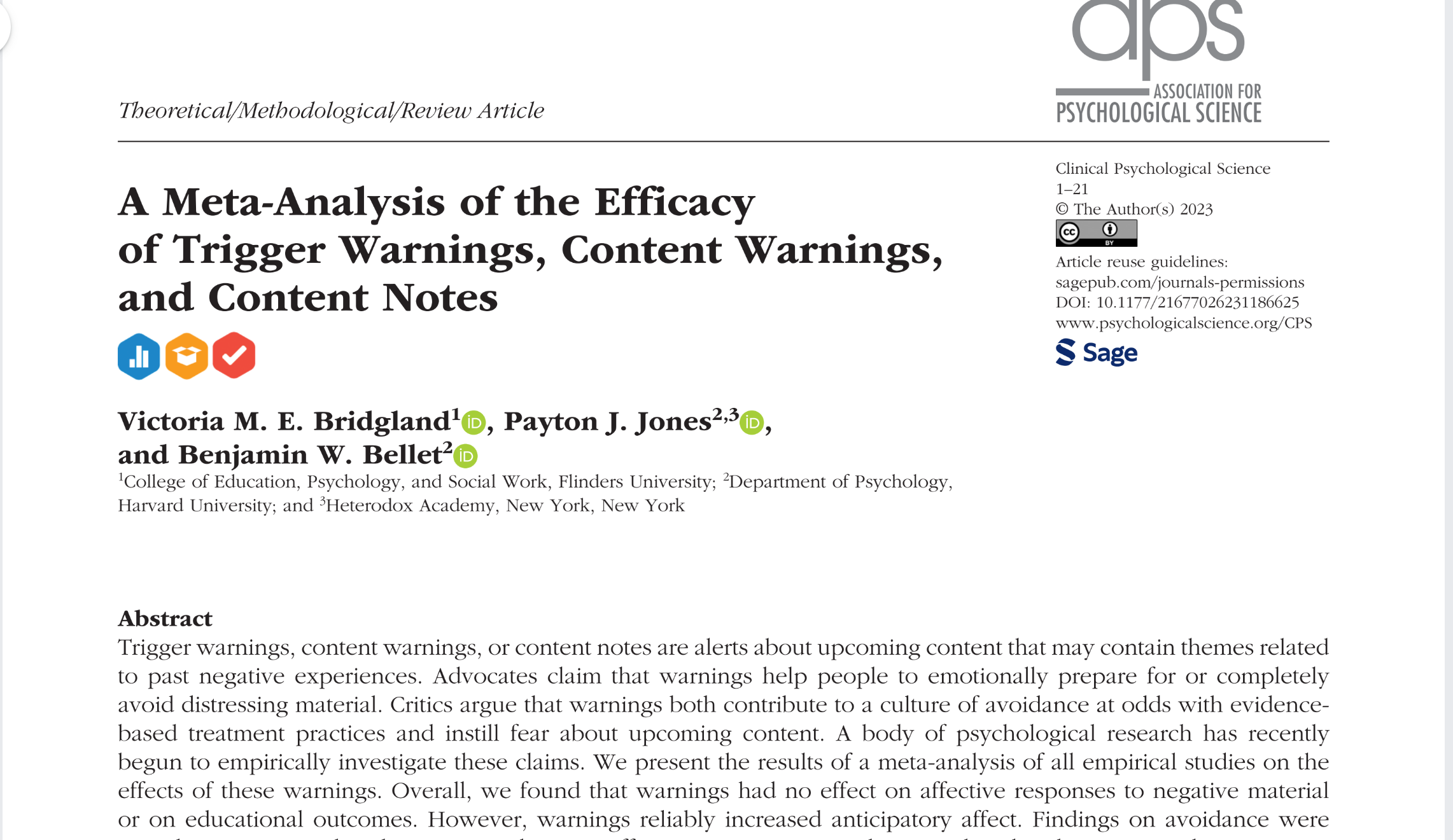
Proponents of trigger warnings have argued that they are courteous, providing a heads-up to those who wish to avoid troubling material. But, new research shows that they do not work as intended. According to this meta-analysis, such warnings do not produce higher levels of avoidance and in some cases, people are more likely to engage with potentially upsetting content.
This may be due to our own morbid curiosity. Warning us that we are about to witness something troubling piques our interest, which makes it that much more difficult to turn away (think about our propensity to slow down and observe a car accident on the highway). Interestingly, the study also found that trigger warnings themselves can be upsetting physiologically, because of an "anticipatory effect."
Even if trigger warnings did result in more avoidance (which we now know they don’t), most psychologists agree that avoidance is an ineffective coping mechanism because it conditions us to believe we are fragile and incapable of developing resilience against the triggering content.
There will be some who interpret this new research as evidence of a lack of caring/empathy. But it appears that trigger warnings simply provide the illusion of care. Much more empathetic (and effective) would be forms of exposure therapy, assuming it’s done wisely and with the help of a professional where necessary.
Trigger warnings have become so pervasive despite evidence of their efficacy, reiterating a challenge of modern society and a painful lesson of the pandemic: it’s difficult to "follow the science," given how slowly science operates. And until there is quality research, we’re essentially flying blind, hoping for the best. Now that there is quality research about trigger warnings, we must look objectively at what it tells us and adjust accordingly.

.png)